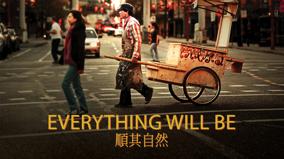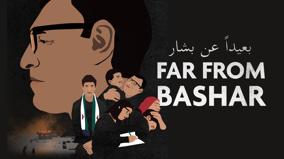Neuvième étage
Long métrage documentaire de Mina Shum sur un tournant dans les relations raciales canadiennes et l’un des épisodes les plus contestés de l’histoire de la nation. À Montréal, un groupe d’étudiants issus des Caraïbes soupçonnent leur professeur de racisme et occupent une section de l’école en guise de protestation. Des décennies plus tard, les acteurs principaux du mouvement de contestation se remémorent les événements, cherchant à comprendre ce qui s’est passé et à mesurer le progrès réalisé depuis.

Details
Long métrage documentaire de Mina Shum sur un tournant dans les relations raciales canadiennes et l’un des épisodes les plus contestés de l’histoire de la nation. À Montréal, un groupe d’étudiants issus des Caraïbes soupçonnent leur professeur de racisme et occupent une section de l’école en guise de protestation. Des décennies plus tard, les acteurs principaux du mouvement de contestation se remémorent les événements, cherchant à comprendre ce qui s’est passé et à mesurer le progrès réalisé depuis.
-
NoneMina ShumJohn PriceRoman MartynÉtienne DesrosiersCarla ClarkeMartine LeclercSean SweeneyLeon River-MooreChristopher VadnayMiguel NunesIsabelle PainchaudPatrick TrahanPierre Dupont
-
directionMina Shum
-
producerSelwyn Jacob
-
editingCarmen Pollard
-
original musicBrent Belke
-
sound designMiguel Nunes
-
art directionElisabeth WilliamsDonna Noonan
-
assistant unit managerDiane Janna
-
production directionDan EmeryJennifer Roworth
-
production assistantSimone Princess DonelanAlexandre CadieuxCamerin CobbMichael HarrisGuillaume LabrecqueIsabelle LimogesJessica LeeCarliena Holder
-
location soundMarco FaniaGabor Vadnay
-
2nd camera assistantCamille BadurauxAnn Berrie
-
head gripPierre MalouinBob McKennaRobin Pishton
-
stage handSylvain BélangerChris KralikFrançois Warot
-
electricianWalter KlymkiwGaétan St-OngeEric BabinJean-Roger LedouxIscah Straker
-
set designer assistantGeneviève Burke
-
prop makerAlexander SergejewskiFrank Seales
-
scenic artistAlain ClouatreSylvain GauthierGeneviève ReneaultMelanie SchmitzDerek TyrrellFrank Seales
-
creative directorCarmen Pollard
-
visual effectsBrett Keyes
-
graphic illustratorBrock Ellis
-
film researchElizabeth KlinckTom PuchniakLesley-Anne Macfarlane
-
researchDavid Austin
-
transcriptsTracy Sitter
-
participantRodney JohnClarence BayneAnne CoolsNantali IndongoRobert HubsherNoel LyonClaude-Armand SheppardMarvin ColebyDuff AndersonNaim Indongo-BangouraBukka RennieTerrence BallantyneValerie BelgraveHugo FordLynne MurrayMark Chang
-
photographsVéro BoncompagniJonathan WenkMarlon James
-
voice-overMackenzie Gray
-
score mixerVince Renaud
-
sound engineerPaul Forgues
-
musicianMark FerrisCameron WilsonMarcus TakizawaFinn Manniche
-
sound editing - assistanceSimon Cho
-
sound effects creationDon HarrisonIan Mackie
-
post-sync effects recordingRick Senechal
-
online editingSerge Verreault
-
sound mixerJean Paul Vialard
-
music recordingGeoffrey Mitchell
-
subtitlingZoé MajorElaine Potvin
-
technical coordinatorSteve HalléWes Machnikowski
-
delegate producerTeri Snelgrove
-
production coordinationKaren DowningKathleen Jayme
-
production supervisionKathryn Lynch
-
marketingLeslie Stafford
-
media relationPat Dillon
-
administrationJennifer Roworth
-
executive producerShirley Vercruysse
Education
Ages 13 to 18
Civics/Citizenship - Human Rights
Diversity - Black Studies
History and Citizenship Education - Civil Rights and Freedoms
Social Studies - Social History
Define systemic racism. What barriers did the student protestors at Sir George Williams University face in Montreal during the 1960s? How did Ninth Floor challenge your notions of justice, civil rights and fair play in Canada? While Prof. Perry Anderson was suspended, he was never found guilty of charges of racism against Black students. What did this protest accomplish in the end? Address how director Mina Shum set up shots when interviewing the now much-older participants of the George Williams protests.

















